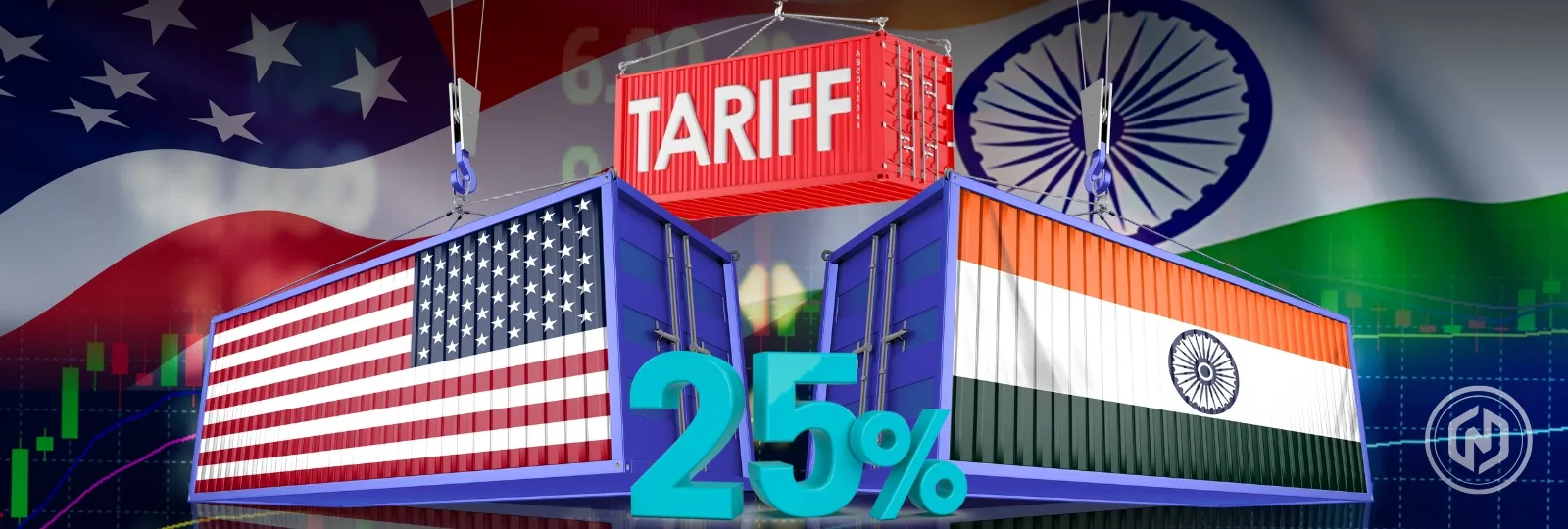- India prioritizes sovereignty and MSME protection amid tariff tensions.
- Trump cites Russia ties, halts trade talks with India.
- Future India–US trade cooperation uncertain after tariff escalation.
New Delhi, July 30 — India has issued a strong yet measured response following US President Donald Trump’s announcement of a 25% tariff on imports from India. The Indian government, in an official statement, confirmed that it has taken note of the US decision and is carefully analyzing its broader implications.
India Hits Back as Trump Announces Tariffs
Over recent months, India and the United States have been working to conclude a fair and balanced bilateral trade deal. These negotiations were aimed at fostering mutual benefits and addressing concerns on both sides. However, President Trump’s latest move appears to have halted those discussions, placing strain on the already delicate economic ties.
BREAKING:
INDIA REACTS ON TRUMP’S 25% & PENALTY THREAT
“The government attaches the utmost importance to protecting and promoting the welfare of our farmers, entrepreneurs, and MSMEs” pic.twitter.com/SgcccVatR7
— Sidhant Sibal (@sidhant) July 30, 2025
India Emphasizes Welfare and Economic Sovereignty
In its reaction, India’s government emphasized its unwavering commitment to the welfare of farmers, entrepreneurs, and micro, small, and medium enterprises (MSMEs). Officials reiterated that all necessary steps will be taken to safeguard national interests.
The government highlighted its proven record in securing favorable outcomes in previous trade deals, including the recent Comprehensive Economic and Trade Agreement with the United Kingdom. The statement made it clear that India remains committed to equitable and reciprocal economic engagements.
Trump Imposes Tariff, Cites Russia Ties
President Trump, via his Truth Social account, justified the tariff action by accusing India of maintaining defense ties with Russia and applying unfair trade policies. He declared that a 25% tariff, alongside unspecified penalties, would be enforced from August 1. “All things not good!” Trump added in his post.
The announcement came with a broader protectionist wave. On the same day, the White House released a fact sheet detailing a new 50% tariff on semi-finished copper products and related items. These copper-related duties, also effective August 1, stem from a Section 232 national security review. Notably, the tariff excludes copper scrap and raw copper input materials.
Future of India-US Trade Talks Uncertain
Trump’s tariff declaration effectively dims the prospects of a near-term trade agreement with India. Negotiators had been working toward a limited deal, but the latest developments indicate a breakdown in momentum.
Trump asserted that India has imposed some of the highest tariffs globally and insisted that his administration would not extend the existing deadline for trade adjustments. He confirmed that 15% would now serve as the new tariff baseline for countries lacking formal trade agreements with the United States.
In the meantime, the United States is engaged in a very active process of trade negotiation with other world powers. Recently concluded talks between China and Sweden in Sweden have been reported to have reversed modestly. Nevertheless, they have yet to decide whether to re-introduce a tariff truce agreement that they already entered into 90 days ago and will dissolve on August 12. Another expansion is still in the proposal.
At the same time, the US and European Union are in a hurry to sign a new trade deal. European leaders have expressed their disappointment even though Washington has pleased with the deal. German Chancellor Friedrich Merz had said of the process that it was rushed and French politician Francois Bayrou had termed the result a shameful surrender.
India Reaffirms Commitment to Fair Trade
Negative recent experiences notwithstanding, India continued to uphold the confidence in equitable trading system. The government declared that current trends were not a deterrent to its long term prospect of balanced economic relationships.
There was also a reminder by officials that India would be thoughtful in their responses by being aggressive in acts to defend their own industries and pursue their own strategic concerns.
As August 1 nears all eyes are now focused on how this latest difficulty in the complicated economic intercourse between the two countries will be weathered.


